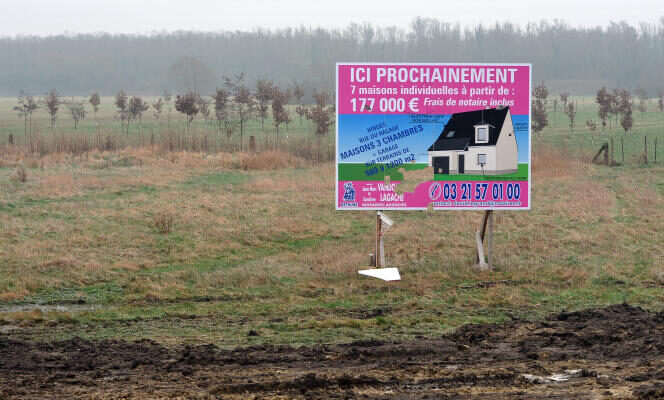How to make “zero net artificialisation” (ZAN) acceptable? For several weeks, the Minister for Ecological Transition, Christophe Béchu, has been leading discussions with parliamentarians in order to put the ZAN – which aims to compensate, by 2050, each square meter taken from the land by its equivalent returned to the nature – on the right track. The objective: less concreting without curbing the development of the communes.
Several points crystallize the disagreements. The first is central. The government wants the regions to play a preeminent planning role. “It is hard to imagine a mathematical approach which would impose a 50% reduction everywhere”, defends the deputy Renaissance of Deux-Sèvres Bastien Marchive. And, he assures, the regions could very well distribute the collective effort themselves on their territory. But the senators refuse to grant them too much power.
Behind this hides a major challenge: the fair sharing of land consumption between cities and the countryside. “It is to be feared that regional competence will give more weight to the claims of metropolises and urbanized areas to the detriment of rural territories”, explained Valérie Létard, centrist senator from the North, on March 14. The “small” mayors are afraid of being the losers of the ZAN, of being shut down, if they do not have the means to resist the large communities in the division of land.
The senators are asking for a one-year delay and, above all, that we trust elected officials. The latter are already showing themselves to be economical in land, they say. Sébastien Miossec, socialist mayor of Riec-sur-Bélon (Finistère) and deputy president of Intercommunalities of France, which brings together associations of municipalities, gives figures: in six years (from 2015 to 2021), elected officials have already consumed 26 % less land compared to 2009-2015, while the objective is to reduce by 50% in ten years.
The consensus that seems to emerge would leave planning to the regions, but would send the municipalities and intermunicipalities to organize the distribution.
“Purely mathematical logic”
The second point of disagreement is what is called “the rural guarantee”: what tool should be granted to small municipalities to ensure them a minimum possibility of development? Everyone agrees on the necessary nature of this guarantee. But not on the terms. A bill passed in the Senate on March 16 grants one hectare to each for the decade. The deputies, them, propose 1% of the surface of the commune.
You have 48.26% of this article left to read. The following is for subscribers only.
